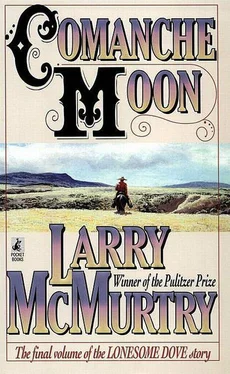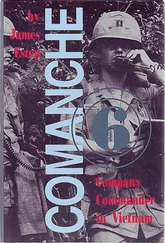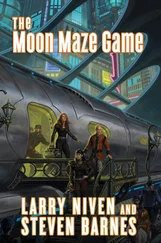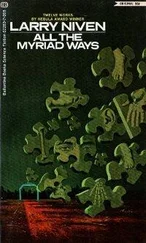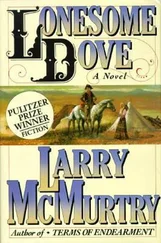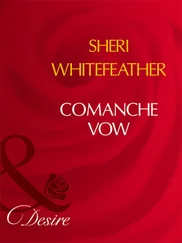They needed to be on the move. But Tana was a stubborn young warrior; he would not stop arguing.
Quick Antelope and Big Neck were firm with him, though. He could prance up and down and make threats, but they were not going to let him have the woman.
Tana was very angry at the two men who opposed him. He felt like fighting them both.
Quick Antelope had never been much of a fighter, but Big Neck was different. Though he looked old he moved quickly and was almost as strong as Buffalo Hump. The only way to beat him would be to kill him with an arrow, or shoot him, and Tana, though very angry, knew he would not be welcomed in the tribe if he killed Big Neck over a white woman.
"Put her on the horse," Quick Antelope said. "You can beat her some more tonight." But Tana's rage was too great. He would not do as he was told. If he could not be left to torture the woman, at least he could kill her. It was what his father would want. He watched her, as she cowered under the little blanket with her children --he wanted her death and he wanted her to know it was coming.
"You can put the children on the horse," he told Big Neck. "I am going to kill the woman." Tana took out his knife and began to sing a death cry. He looked at the woman and waved the knife at her. He wanted her to know he would step across the fire soon, and cut her throat.
Satay began to feel uneasy, and it was not because Tana was so determined to kill the woman. He looked around. Big Neck and Quick Antelope felt the uneasiness too. They picked up their weapons and looked around. Though no one could see any danger, they all felt that something was not right--all except Tana, who was advancing on the terrified white woman, waving his knife and singing a loud death cry.
Tana jumped across the campfire and grabbed the white woman by her long hair. He pulled her up, away from her children, so she would know a lot of fear before he put the knife to her throat. He dragged her through the fire again and lifted her up so that he could cut her throat, but Quick Antelope suddenly ran past him, bumping him a little.
The bullet hit Tana and knocked him clear of the woman before he saw the horsemen, racing toward them. He rolled over and saw that Quick Antelope had fallen too. Several horsemen were coming and coming fast. Big Neck was among the horses. Tana wanted to reach his gun, but his gun was several yards away. The horsemen were racing down a little slope toward the camp. Tana saw Big Neck leap on a horse and turn to flee, but before he was even out of camp a bullet knocked him off his horse. Tana was almost to his gun when another bullet hit him. It caused him to row over. The ground where he fell was sandy-- he wanted to reach for his gun, but he could not see.
It was as if the sand was pouring over his eyelids, so heavy that he could not open his eyes. He heard the horsemen, racing closer, but the sand was so heavy on his eyes that he let it bury him--he had ceased to worry about the horsemen, he only wanted to sleep.
The plan, hastily established, was for eight rangers to charge the four Comanche braves, mainly to distract them. Deets was to watch the spare horses. Call and Augustus dismounted and crawled to within one hundred yards of the camp while the Comanches argued about the woman. When the young brave raised his knife to the woman, Augustus shot him; when the boy got up, he shot him a second time. Call shot the two braves standing by the weapons; one he had to shoot three times.
By this time the racing rangers were almost in the camp, led by Teddy Beatty. Several of them shot at the large warrior who mounted and was about to escape, but it was a snap shot from Gus McCrae that killed him.
Call hurried down into the camp and made sure that all four Comanches were dead. Most of the men, Augustus included, were stunned to find that the battle was over so quickly.
"They're dead, Woodrow--they're dead," Augustus assured him.
All of them were surprised that the victory had been so easy.
"I guess we'll be promoted when we get home," Gus said, reloading his rifle.
"There ain't nothing to promote us to, we're already captains," Call reminded him. "If that ain't high enough for you, then I guess you'll just have to run for governor." "He'd never get elected, he's done too much whoring," Long Bill said.
Gus knelt by the young Indian boy, to see where he had hit him. Deets came up, leading the extra horses, and went to help the two children.
Call pulled a slicker off his saddle and gave it to the woman, who was almost naked. She took the slicker but didn't say thank you and didn't look at them. She was staring away.
Of course, he realized, she had been only a moment from death--perh she couldn't yet comprehend that she was saved. Perhaps in her blind stare she still saw the knife poised above her.
"You're saved, ma'am--we got here just in time," Call said, before backing away. He didn't think it wise to say more, or to try and rush the woman back from the place she had gone in her mind. It was a place she had had to go to survive, as much as she had survived, he felt sure. If she was let alone she might come back, although he realized there was a chance she wouldn't come back. What was sure was that the men who would have killed her were dead.
"You made a fine shot to keep that young one from killing her--he was ready," Call said to Gus.
"They're all four dead and we got the woman and the children back, and some horses besides. We've been fair captains, so far." Augustus was thinking how quick it had been--a few seconds of action and four men dead.
Deets was talking to the two children, while the other rangers milled. Neely Dickens was becoming more and more exhilarated by the knowledge that he was alive. Long Bill busied himself counting the horses they had recovered, fourteen in all.
"I guess we won't starve now, boys, even if we get plumb lost," he said. "We got horsemeat now--horsemeat on the hoof." Pea Eye had charged down on the Indians with the rest of the men, but had not fired his gun--he thought he would be unlikely to hit anybody, while running at such a speed. Pea Eye had heard so many tales about how devilishly accurate Indians were with tomahawks and clubs that he had kept as low on his horse's neck as possible, as he raced, hoping to avoid the tomahawks and maybe the arrows too. But then it turned out they were charging only four men, all of whom were dead by the time he reached the camp. Only one of the men had a tomahawk, and the rifles they were equipped with looked older and less reliable even than his own. Pea Eye went over to hold the horses, while Deets tended to the frightened children.
He felt weak, so weak that he thought he might have to sit down. Even so he did better than Neely Dickens, who passed through his phase of exhilaration, grew weak suddenly, and fainted.
Neely flopped down as if dead, but, since none of the Comanches had so much as fired a gun, no one supposed Neely to be dead. Teddy Beatty fanned him with a hat a few times and then paid him no more attention.
"He ain't hurt, the little rascal," Teddy said. "Let him nap, I say." Call noticed that the woman had a lot of blood on her legs--the travelling must have been rough.
"We need to go," he said to Augustus. "These four are dead, but there could be forty more not far away." "Or four hundred more--how would that be?" Augustus said. The fight had left him feeling a little distanced from himself, all the men seemed to feel that way, even Call. But it wasn't a condition they could afford to indulge, not with Buffalo Hump's camp just to the north.
"Do we bury them, Woodrow?" he asked, no.ing toward the dead warriors.
It was a question Call had not had to consider before.
There were four dead Comanches. Did they bury them, or leave them as they had fallen?
Читать дальше
